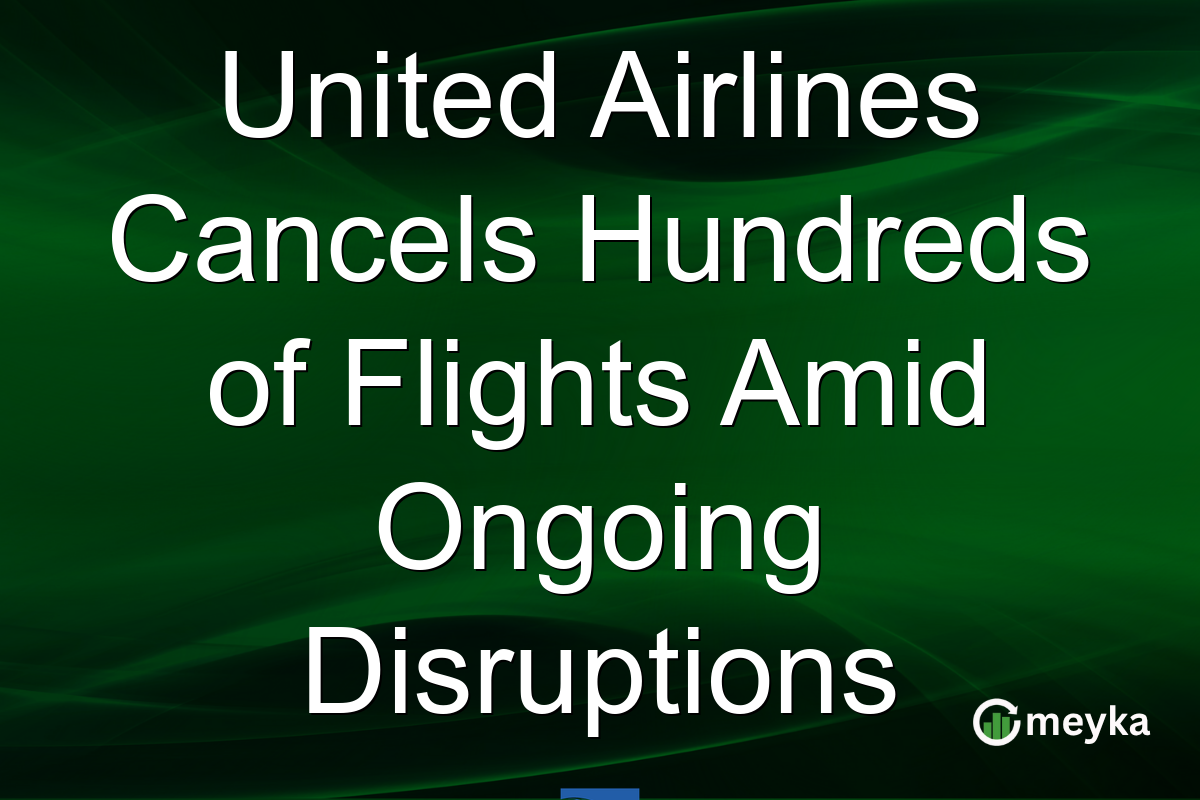United Airlines Cancels Hundreds of Flights Amid Ongoing Disruptions
Today, United Airlines made headlines by canceling hundreds of flights across major US airports. This action, caused by technical hiccups and staffing shortages, has led to significant travel disruptions as peak travel season approaches. With the airline industry already facing pressures, these cancellations contribute to growing concerns about operational stability and passenger confidence. The situation highlights the fragility of air travel systems and poses substantial implications for United’s stock and the broader airline market.
The Immediate Impact on Passengers
United Airlines’ flight cancelations are a reminder of the fragility in the airline industry. Thousands of passengers were left stranded or facing long delays. This disruption has become a significant concern, especially with the peak travel season at hand. Passengers are expressing frustration over rebookings and accommodations, further complicating travel plans. The airline has responded by providing additional customer support and alternative travel arrangements.
CNBC reports this marks one of the largest single-day disruptions for United in recent years.
Operational Challenges and Root Causes
The primary reasons for these disruptions stem from ongoing technical issues and staffing shortages. United Airlines has been grappling with its operational systems, which are crucial for scheduling and maintaining flight paths. Additionally, the airline is facing a shortage of pilots and crew, exacerbated by industry-wide recruitment challenges. This emphasizes a systemic issue within the airline industry, affecting not just United but other major carriers as well.
Impact on United Airlines Stock and Industry
The disruptions haven’t gone unnoticed by the stock market. United Airlines’ stock (UAL) price movement today showed minimal change, closing at $104.18, marginally up by 0.048% despite a volatile session. In the previous week, UAL was up by 12.25%, showing resilience amid turmoil. However, the airline faces long-term challenges as it battles a potential downturn in passenger sentiment and confidence, crucial for its sustained recovery. Investors continue to watch closely, as delays and poor service can dampen stock prospects.
Reuters highlights analyst concerns about future cancellations impacting earnings.
Broader Airline Industry Implications
The cancellations are symbolic of broader issues prevalent in the airline industry—technical infrastructure weaknesses and workforce inadequacies. Other airlines experiencing similar problems could signify systemic vulnerabilities that need addressing. Moreover, these issues could impact the stock trajectory of airlines beyond just United, as market confidence in the reliability of air travel remains hesitant. Given the industry’s role in global trade and travel, ongoing disruptions could ripple beyond direct passenger feedback, affecting economic markers tied to the aviation sector.
Final Thoughts
United Airlines’ significant flight cancellations underscore systemic challenges within the airline industry, affecting passengers and investor sentiment alike. As technical and staffing issues continue, airlines, including United, must adapt rapidly to ensure disruptions are minimized and trust is reinstated. For investors, while the current resilience of UAL stock shows potential stability, the long-term outlook depends on effective operational recovery and customer satisfaction. Keeping an eye on Meyka’s insights could provide real-time data analytics crucial for informed investment decisions in a turbulent market environment.
FAQs
United Airlines canceled flights due to ongoing technical issues and staffing shortages. These disruptions have been prevalent across major airports, causing significant travel inconveniences.
Despite the disruptions, United Airlines’ stock (UAL) showed resilience, with a slight increase in price. However, continued poor service could impact long-term investor confidence and stock performance.
The disruptions highlight systemic vulnerabilities in the airline industry, from technical infrastructure to workforce issues. These could affect other carriers, leading to elevated risks and potential long-term effects on airline stocks.
Disclaimer:
This is for information only, not financial advice. Always do your research.






